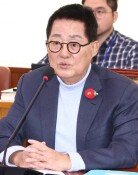Chinas National Assemblies Open
Chinas first half political event of the year, the Lianghui has begun. Lianghui refers to the Chinese Peoples Political Consultative Conference (CPPCC) that opened on March 3 and the National Peoples Congress (NPC) that will commence on March 5.
The two conferences are important political events that indicate the direction of Chinese political movement in future, along with the National Congress of the Communist Party of China that begins in every latter half of the year. This years Lianghui focus will likely be on the following:
A discussion on Hong Kong-Shenzhen Integration-
Each party and the CPPCC, that consists of social groups at every level, fields about 4,000 to 5,000 suggestions every year, and they do their best to reflect those suggestions.
The third session of the 10th Chinese Peoples Political Consultative Conference (CPPCC) this year will do the same. The most notable proposal is that Hong Kong and Shenzhen in Kwangtung province should be integrated and that Fujian should be designated as a free-trade zone to build a strait economic zone.
Its the first time that the Hong Kong and Shenzhen Integration Proposal has been officially reviewed, and the suggestion came out of the situation in which Hong Kongs geographical space to develop has reached a limit, and that it should be united with the neighboring special economic zone, Shenzhen.
Hong Kong can currently no longer afford to reclaim land from the sea, which has led to s jump in real estate prices, a steady increase in the number of companies moving out of Hong Kong, a decrease in the number of jobs and an outflow of young talent that has intensified the aging of the population. Facing these situations, China plans to combine Hong Kongs capital and management skill and Shenzhens labor and land.
In addition, the Strait Economic Zone Proposal says that China would accelerate its economic integration with Taiwan, using the geographical advantage that the Fujian Province has.
Fujian now has about 7,000 Taiwanese companies who have invested about 15 billion dollars in it. If Fujian, including the special economic zone, Xiamen, is designated as a free-trade zone, China could advance its hopes of national union after realizing direct links in three areas (trade, airline flights and postal service).
The truth and false of the National Peoples Congress-
Phoenix Satellite TV in Hong Kong reported on February 28 that the most practical agenda of the NPC this year is to establish an Anti-Secession National Law and that the most futile agenda is the Establishment of a harmonious society by the Chinese president, Hu Jintao.
The Anti-Secession Law that would be passed on March 14, the last (closing) day of the 10th National Peoples Congress, is drawing fierce opposition from Taiwan for justifying a forced mobilization in order to hinder Taiwans independence movement.
President Hu, who took over the presidency of the Party Central Military Commission from the former president of China, Jiang Zemin, last year, is scheduled to complete the process of succession by becoming the head of the State Central Military Commission, a nominal post.
From his position of power, Hu has suggested the Establishment of a Harmonious Society, a theory that aims to settle ongoing problems of unbalanced distribution in order to create a stable society under a new governance ideology.
Yoo-Seong Hwang yshwang@donga.com







